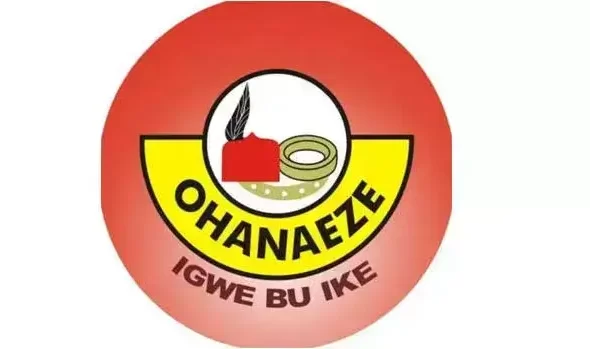The apex Igbo socio-cultural organization, Ohanaeze Ndigbo Worldwide, has fiercely condemned a controversial bill currently before the Nigerian Senate that seeks to officially elevate the Ooni of Ife and the Sultan of Sokoto as permanent Co-Chairmen of the National Council of Traditional Rulers.
In a strongly worded statement issued in Enugu on Sunday, the group described the proposed legislation as unjust, divisive, and a blatant affront to the spirit of federal character and ethnic equality enshrined in the Nigerian Constitution.
Dr. Ezechi Chukwu, the National Publicity Secretary of Ohanaeze Ndigbo, expressed outrage over what he called an “asymmetric bill” that threatens the delicate balance of Nigeria’s diverse traditional leadership landscape. According to him, elevating two traditional rulers from only one part of the country while ignoring revered monarchs from other ethnic nationalities undermines national unity and fuels ethnic tension.
“The bill is not only inequitable, discriminatory, and ethnocentric, it is also distasteful, reprehensible, and completely objectionable,” Chukwu said, accusing the Senate of failing in its duty as the custodian of the country’s democratic values.
Read also:
- Adamawa traditional rulers vow to tackle out-of-school children crisis
- Ibas tasks traditional rulers on securing public infrastructure
- Delta traditional rulers pledge support for Tinubu’s re-election
Chukwu insisted that the bill, which has already passed its second reading in the Senate, lacks the ethical framework, objective standards, and inclusive representation necessary in a multi-ethnic country like Nigeria. He stressed that promoting two specific traditional rulers above others disregards cultural sensitivity, geopolitical balance, and fair representation.
Ohanaeze Ndigbo has therefore called for the immediate withdrawal of the bill, urging lawmakers to engage in a more inclusive review that respects Nigeria’s pluralism. According to the group, only a truly balanced and equitable council structure can foster national unity, peaceful coexistence, and lasting social harmony.
As the debate around the bill intensifies, ethnic and regional groups across the country are watching closely, warning that any attempt to institutionalize ethnic dominance could further fracture the fragile unity of the Nigerian federation.






